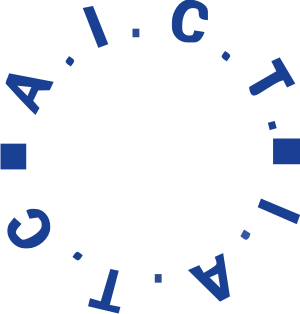
Is Shakespeare Still Our Contemporary? Rethinking the Bard in a World He Never Imagined
Craiova World Congress — 21 May 2026
More than half a century after Jan Kott’s Shakespeare Our Contemporary, the Bard continues to provoke, inspire, and unsettle. Yet the question of his contemporaneity remains pressing. In a world marked by digital surveillance, political turbulence, rising authoritarianism, oligarchic power structures, climate crises, contested identities, and globalized cultural flows, what does it mean today to call Shakespeare “our contemporary”?
Shakespeare’s gallery of power-hungry figures—Macbeth, Richard III, Julius Caesar, Coriolanus, Lear’s daughters, and others—resonates uncannily with current political realities. Their quests for dominance, their manipulations of public sentiment, and their abuses of institutional trust echo the strategies of modern autocrats and illiberal leaders. Do Shakespeare’s tyrants illuminate our present moment, or does the present moment compel us to reread those tyrants anew?
Equally compelling are Shakespeare’s fools: liminal, truth-speaking, socially marginal figures who navigate authority with subversive wit. As voices of dissent within hierarchical systems, how might they guide contemporary audiences, and contemporary critics, through today’s shifting landscapes of influence and power?
This conference invites members of the International Association of Theatre Critics—scholars, critics, artists, dramaturgs, educators, and interdisciplinary researchers—to interrogate Shakespeare’s continuing (or contested) relevance in performance, scholarship, criticism, and public discourse. We particularly seek contributions that illuminate the role of critics and reviewers in shaping, mediating, or challenging Shakespearean interpretation in a world defined by contested authority, shifting narratives, and intensified political struggle.
Critics do more than report. They frame reception, influence public and academic debate, and perform the interpretive labor that keeps Shakespeare alive—or that exposes fractures in his canonical authority. This forum encourages reflection on how criticism negotiates the Bard’s relevance and how evaluative discourse interacts with evolving performance practices, cultural politics, digital innovation, and global theatrical exchange.
Suggested Themes
Submissions may address, but are not limited to, the following:
- Shakespeare’s Tyrants and Contemporary Power Politics
Ambition, charisma, populism, and political violence in Shakespeare’s works and in present-day autocratic or oligarchic environments. How critics and scholars engage with performances that explicitly or implicitly link Shakespeare’s power-hungry protagonists to modern leaders who suppress dissent, distort institutions, or consolidate control. - Dissenting Voices: Fools, Truth-Tellers, and Subversive Figures
How Shakespeare’s fools, clowns, and truth-speakers function as critical commentators on authority and hierarchy. Their liminal status, their capacity for dissent, and the ways contemporary performances mobilize these figures to critique power structures, social norms, or institutional failures. - Performance, Adaptation, and Transmedial Reimaginings
Radical reinterpretations, immersive theatre, experimental staging, interdisciplinary hybrids, digital performance, and cross-media transformation. How critics respond to, interpret, or influence these creative shifts and the circulation of Shakespeare across diverse expressive forms. - Critical Lenses and Cultural Politics
Feminist and queer readings; misogyny and gendered power; postcolonial and decolonial frameworks; race, xenophobia, and geopolitics; disability studies; ecology and climate crisis. The role of criticism in amplifying, interrogating, or complicating these interpretive frames. - Digital and Algorithmic Shakespeares
AI-generated texts, digital dramaturgy, algorithmic adaptation, virtual and augmented Shakespearean performance, and the role of critics in evaluating authenticity, innovation, and cultural impact. - Global, Local, and Intercultural Shakespeares
The tension between canonical universality and culturally situated interpretation. How critics navigate Shakespeare’s circulation, reinvention, and politicization across languages, geographies, and performance traditions. - Shakespeare in Education
Pedagogical approaches that position Shakespeare not as an untouchable monument but as a dynamic corpus capable of fostering critical thinking, creativity, and social awareness. How critics influence the shaping of Shakespeare literacy and its relevance for contemporary learners.
Submission Guidelines
- Abstracts: up to 250 words
- Short Bio: up to 150 words
- Deadline for submissions: 20 December 2025
- Notification of acceptance: 15 January 2026
- Contact: grigorescuo2@gmail.com (Oana Cristea Grigorescu), and hanastrejckova@seznam.cz (Hana Strejčková)
Join us as we interrogate, celebrate, and challenge Shakespeare’s place in our world. Critics are not mere spectators; they are interlocutors, provocateurs, and interpreters. The question of whether Shakespeare remains “our contemporary” is no simple academic exercise. It is a call to rethink theatre, culture, and the critical labor that shapes their reception.
Note: A selection of papers presented at the conference will be considered for publication in Critical Stages, the journal of the International Association of Theatre Critics (www.critical-stages.org).
